Our legacy of impactful campaigns
Since our inception in 2000, Greenpeace Philippines has led impactful campaigns that have shaped a better future for the environment and society. From oceans to clean energy, our ongoing efforts continue to build on these foundational successes, driving positive change for the planet.
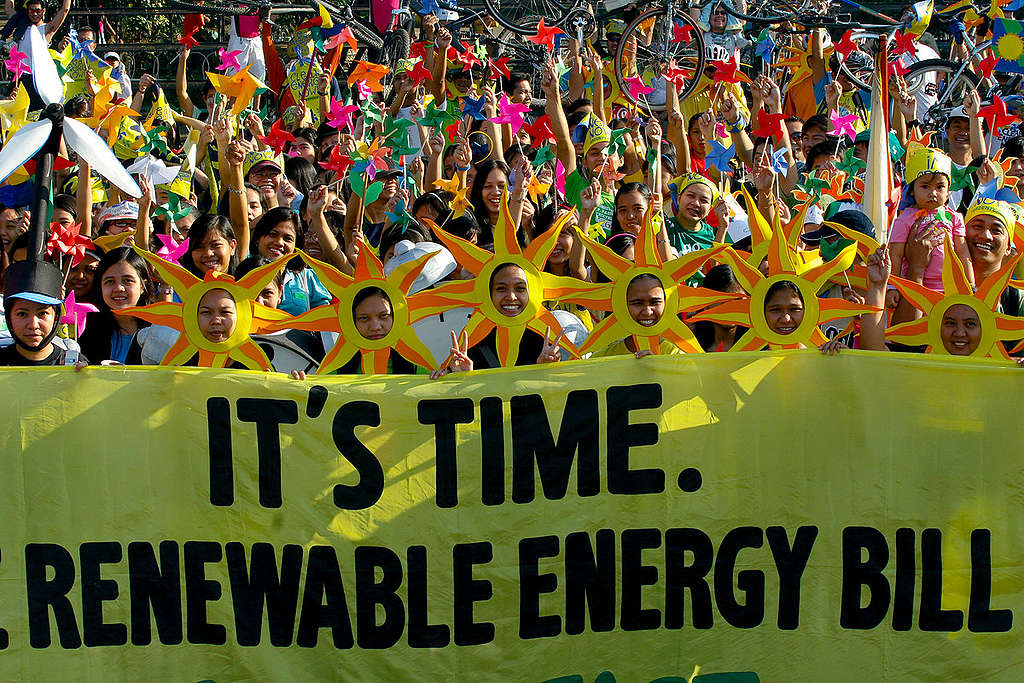
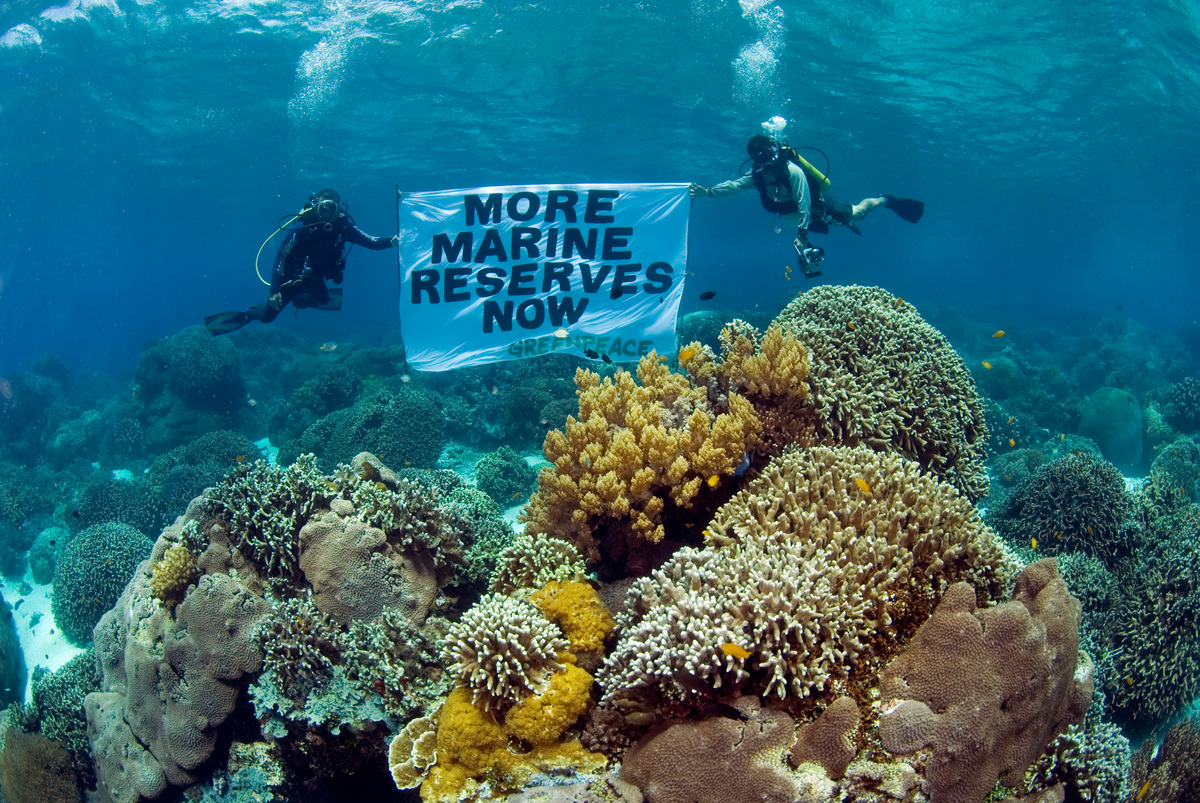
Defend our oceans
Pulsing with incredible marine life, our oceans have provided food, energy, minerals, and a myriad of our needs since time began. But destructive man-made actions like Illegal, Unreported and Unregulated (IUU) fishing, deep-sea mining, and plastic pollution threaten habitats and lives under and above the waters. It’s why we campaign to protect and preserve our oceans. We help push for Marine Reserves to mitigate the warming of our seas that lead to fewer fish supply and the dumping of waste. We also campaign to expose the modern slavery of boat crews working aboard fishing fleets and help develop solutions to end this. When we save our seas, we also save our lives and our future.
Support organic farming
For many years, we were not aware of the genetically modified organisms (GMOs) in the food we eat. GMOs promote chemical-intensive models of farming (think of spraying pesticides over and over to our food). Industry giants hid this from us and governments had not outlined laws to raise awareness about the dangers and to protect our rights to safe and healthy food.
Our food and agriculture campaign promoted sustainable and organic farming as a solution to the environmental and health challenges posed by industrial agriculture.
When we support organic farming and food consumption, we keep the earth fertile, avoid non-natural substances in what we eat, and support local farmers over greedy, profit-driven industrial giants.
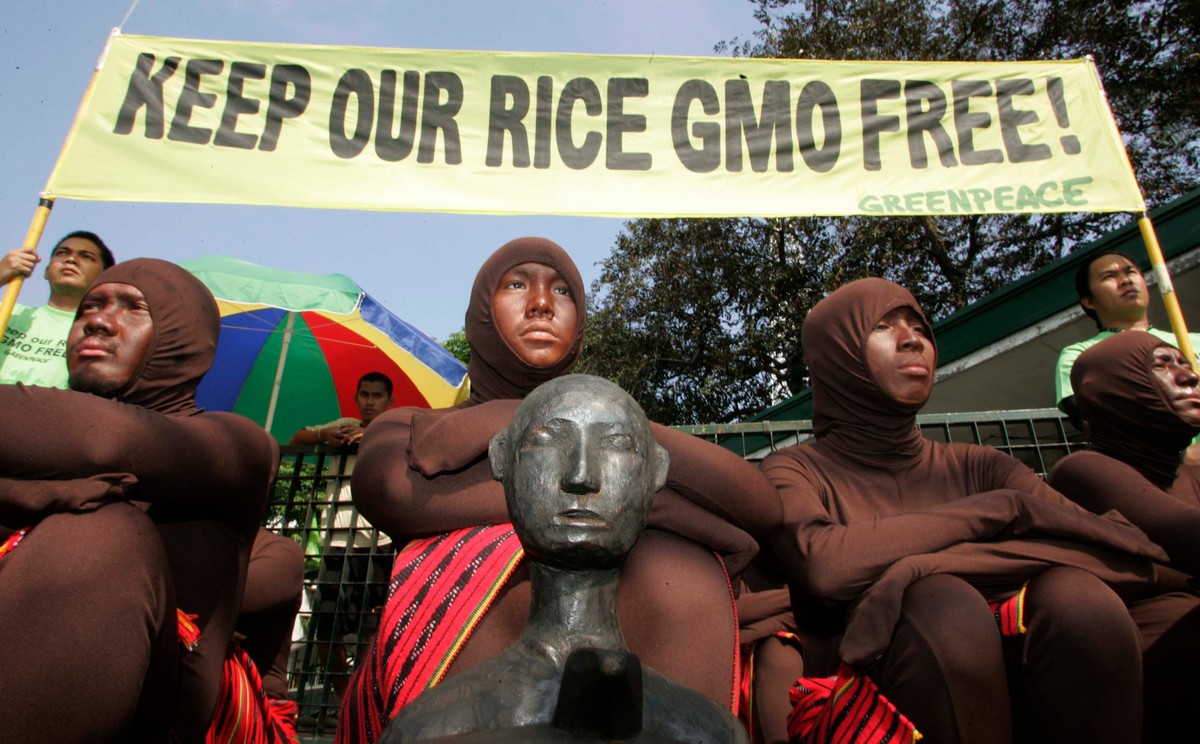
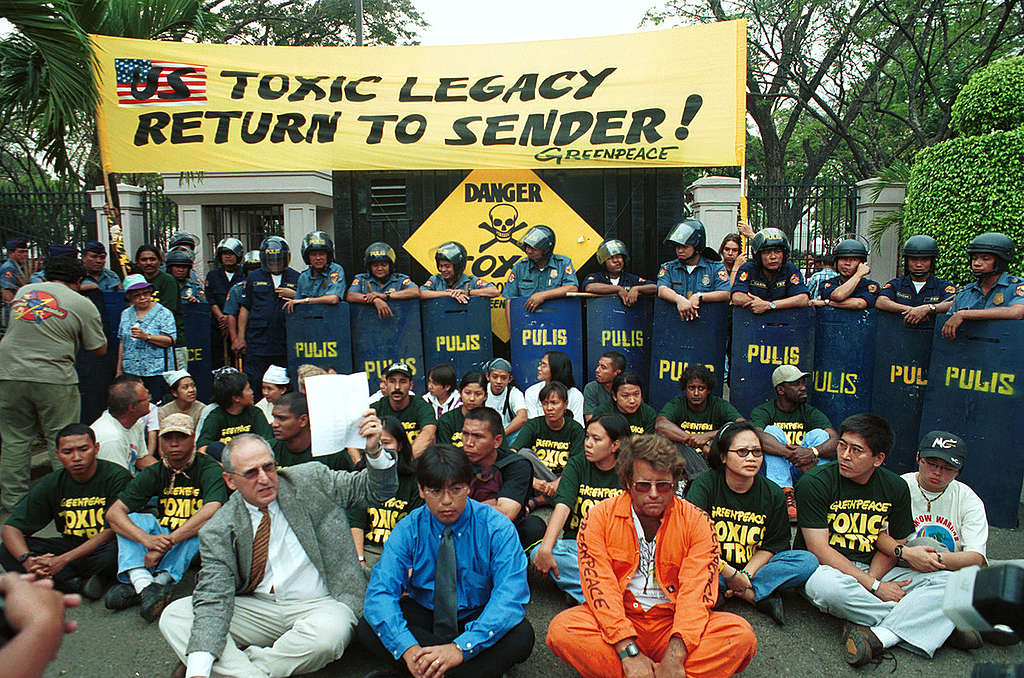
Eliminating toxic chemicals
The toxics campaign was a pivotal effort in addressing the pollution of our environment by hazardous chemicals. Through advocacy and direct action, we pressured industries to reduce toxic emissions, manage waste responsibly, and even campaigned for the US government to take responsibility for the toxic chemicals left in their former military facilities in the Philippines. This campaign informs our ongoing efforts to eliminate harmful substances from our air, water, and soil.
Greener electronics
Smartphones and PCs, for example, may provide us convenience. However, its manufacturing and disposal contribute significantly to electronic waste (e-waste), relying on dangerous mining practices and hazardous chemicals. We analysed these in The Guide on Greener Electronics. From the impact of business models of the world’s leading consumer electronics to the work that needs to be done to protect mining workers and help mitigate the scarring of the Earth, we campaign to pressure companies to reinvent the way we produce electronics.
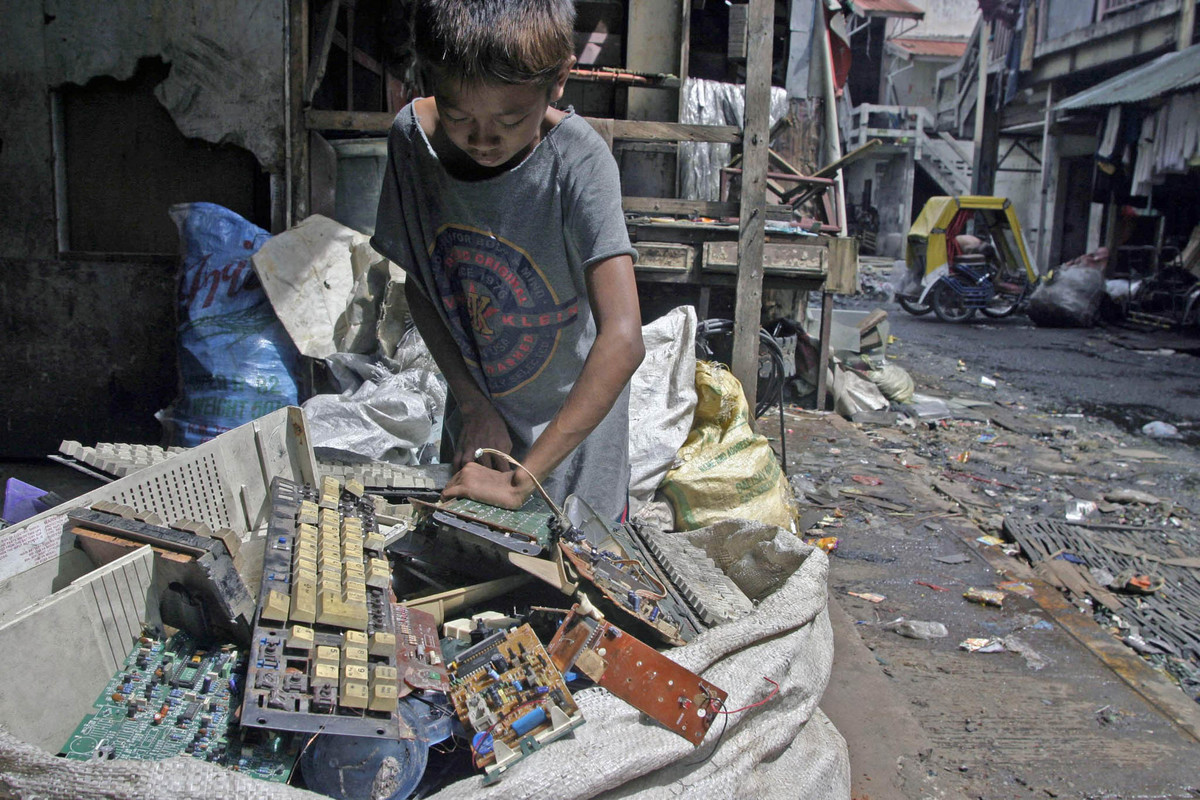
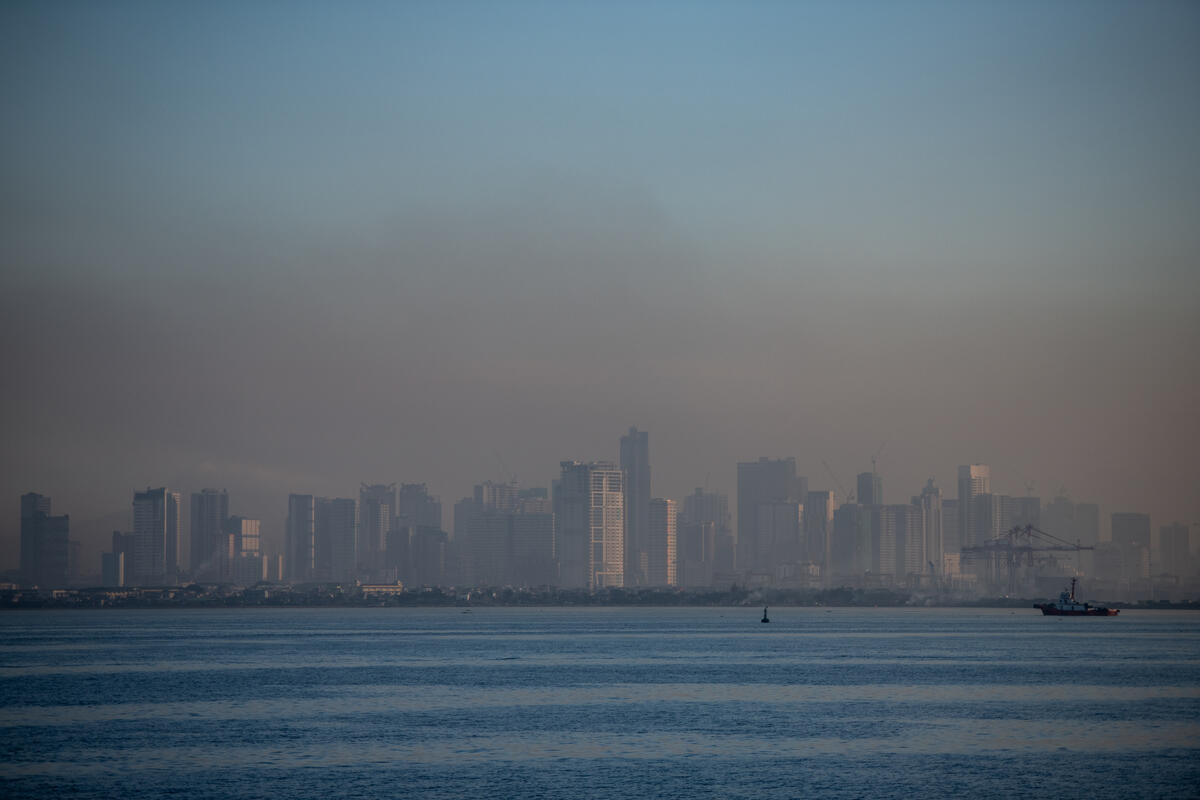
Push for cleaner air
Our Clean Air campaign has long focused on the urgent need to address air pollution, a growing concern in the Philippines. In 1999, Greenpeace’s ship Arctic Sunrise sent a strong appeal to the Philippine government, urging the enactment of the Clean Air Act, which was under threat from incinerator manufacturers looking to profit from technology that emits cancer-causing dioxins and furans, endangering public health. Through persistent advocacy, we successfully pushed for a national ban on waste incineration, and our efforts continue as we advocate for stronger regulations and cleaner air for all Filipinos.
Detox my fashion
The Detox My Fashion campaign targeted the fashion industry’s impact on the environment by demanding the elimination of hazardous chemicals from production processes. Our efforts led to significant commitments from major brands, and this movement continues today as we push for greater transparency and sustainability in the fashion industry.
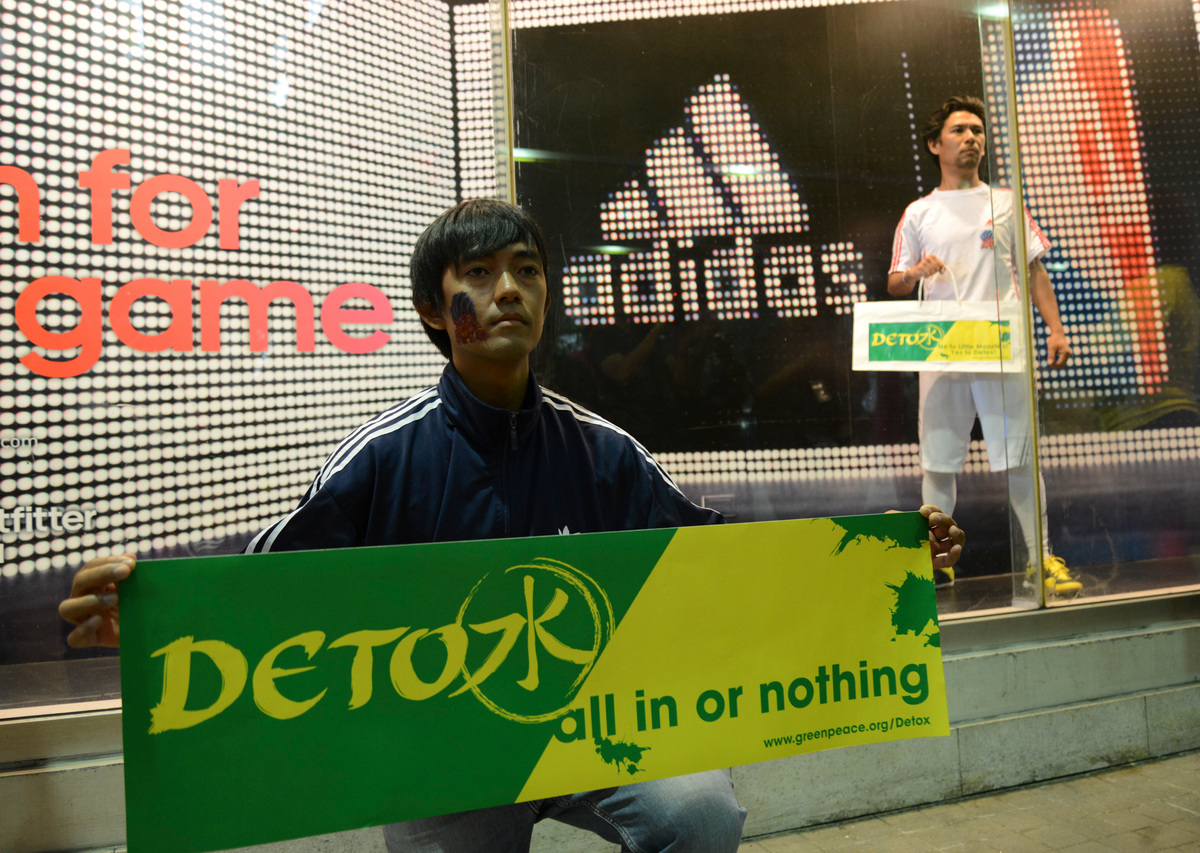
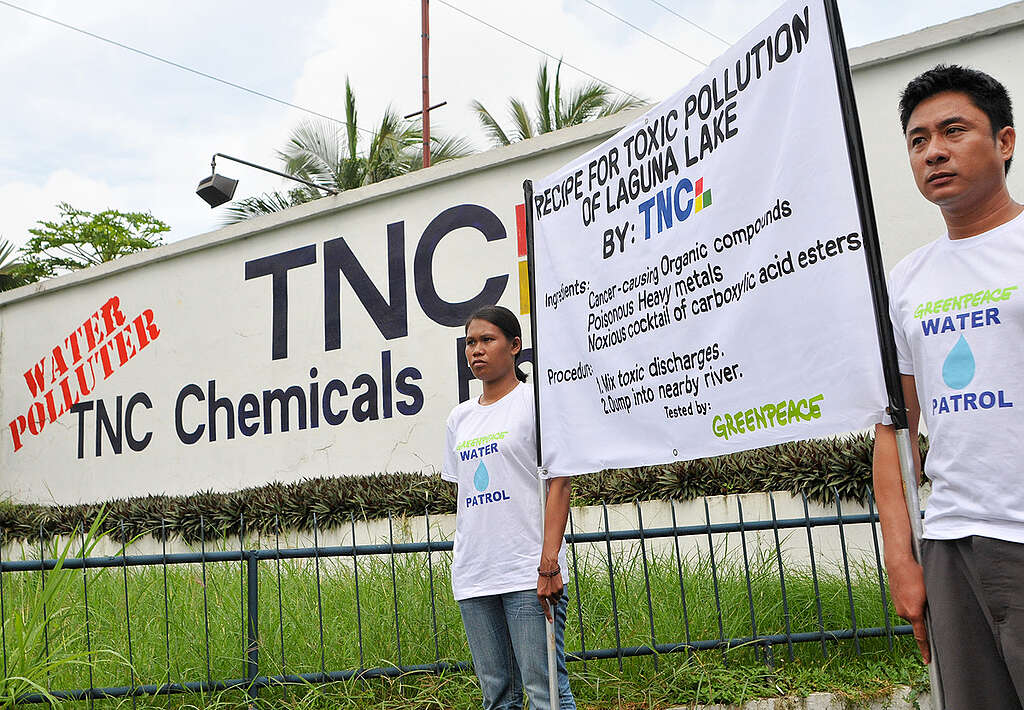
Project Clean Water
We take a similar approach to addressing the water cleanliness in our country. Seems impossible? Well, it has become our reality with the intense pollution of our seas and rivers, combined with the impact of climate change. But we bring Filipinos together to engage in protecting our waters.
Project Clean Water works with local communities, academic institutions, non-government organisations (NGOs), decision-makers, and dedicated volunteers called the Water Patrol to investigate and report on the extent of contamination of waters. We have reached the groundwater in the Benguet farms, the dumpsites around Laguna Lake, and the Cavite Economic Zone where volatile chemicals exist.
In Cavite alone, we investigated a toxic spill by Cleanway Technology Corporation which hospitalised more than 70 community members. With proof of contamination from the water samples and the presence of NGOs and Greenpeace activists and volunteers, we protested and won—the corporation’s CEO committed to full transparency and correction of their lapses.
Save the Arctic
Our Arctic campaign was a global effort to protect one of the most vulnerable ecosystems on Earth. By raising awareness and mobilizing millions, we contributed to a global movement that continues to fight for the preservation of the Arctic. This campaign remains a powerful example of how collective action can drive global environmental protection.
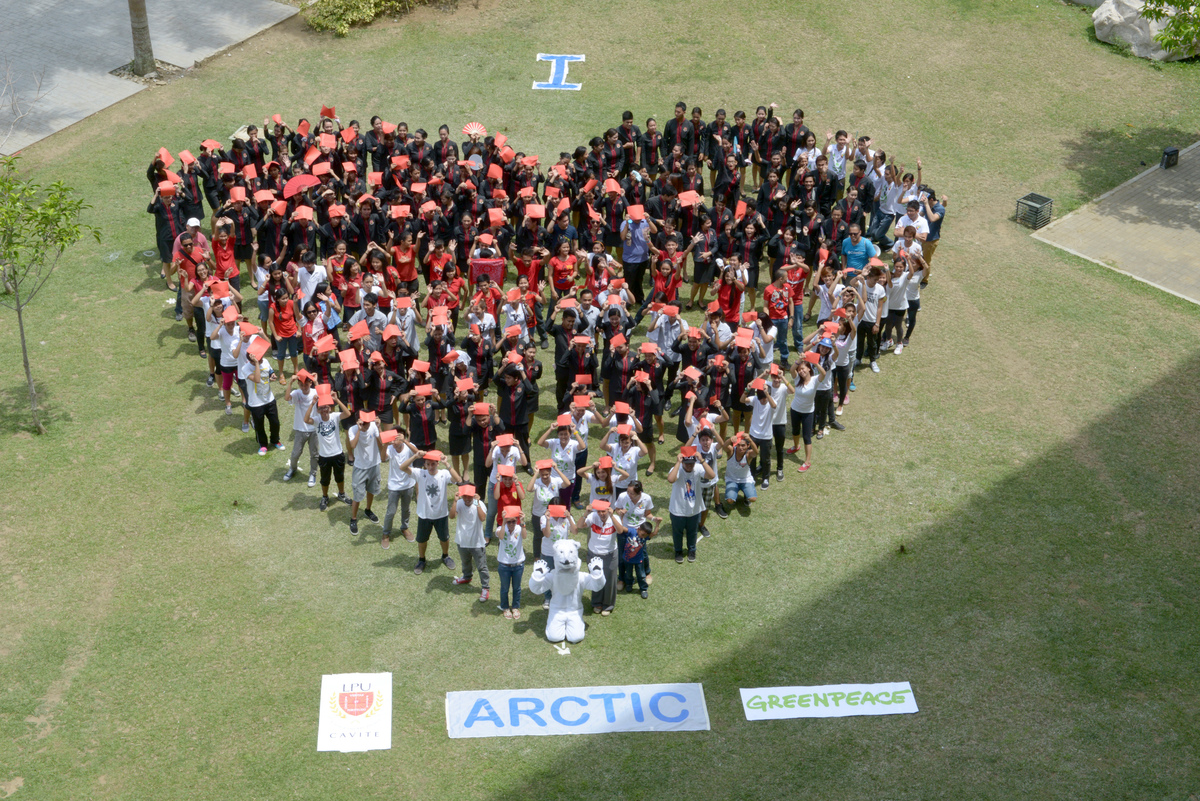
Shift to clean, renewable energy
Contrary to what industry giants like to tout, the real culprits of climate change are not us, the consumers, but fossil fuel companies. Their factories spew out massive volumes of greenhouse gases that further warm our Earth (we’re at 1°C average global temperature now) and worsen climate disasters. They aim to burn coal, oil, and natural gas to generate electricity.
While we need to power our country, we can do so in an eco-friendly way: using clean, renewable energy like solar, wind power, and modern biomass. These are cheaper than coal that we still have to import mostly from Australia and coal plants that release toxic haze and bulldoze through our forests.
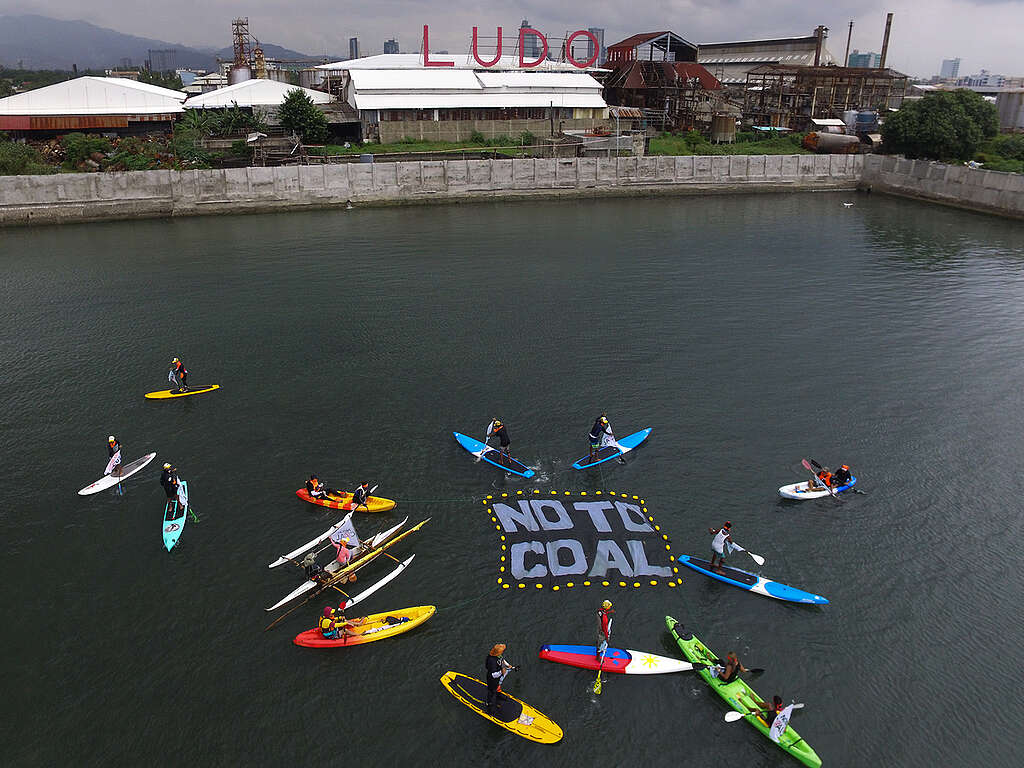
Campaigning against coal
Greenpeace Philippines has long been at the forefront of the fight against coal, recognizing its devastating impact on both the environment and public health. Our campaigns have focused on halting the expansion of coal-fired power plants in areas such as Negros Islands, Cebu, and Isabela, among others, and advocating for the transition to cleaner, renewable energy sources. We have successfully worked with communities, influenced policy changes, and brought global attention to the dangers of coal dependency in the Philippines. This campaign remains critical as we continue to challenge coal projects and promote sustainable alternatives to protect both the planet and its people.
Renewable energy
At a young age, the members of Solar Generation (Solargen), a youth movement under Greenpeace, are bringing light to climate issues and helping the country transition away from dirty fossil-fuel-based energy. Our Climate & Energy campaign has been instrumental in promoting the adoption of clean, sustainable energy sources across the Philippines, with a particular focus on solar power. We have tirelessly demonstrated the viability and benefits of renewable energy, working alongside groups like SolarGen to reduce the country’s carbon footprint and decrease dependence on fossil fuels. Through public education, policy advocacy, and grassroots initiatives, we are paving the way for a future where renewable energy is at the heart of the nation’s energy landscape. This campaign continues to push for wider adoption of solar energy and other renewable sources, ensuring a greener, more resilient future.
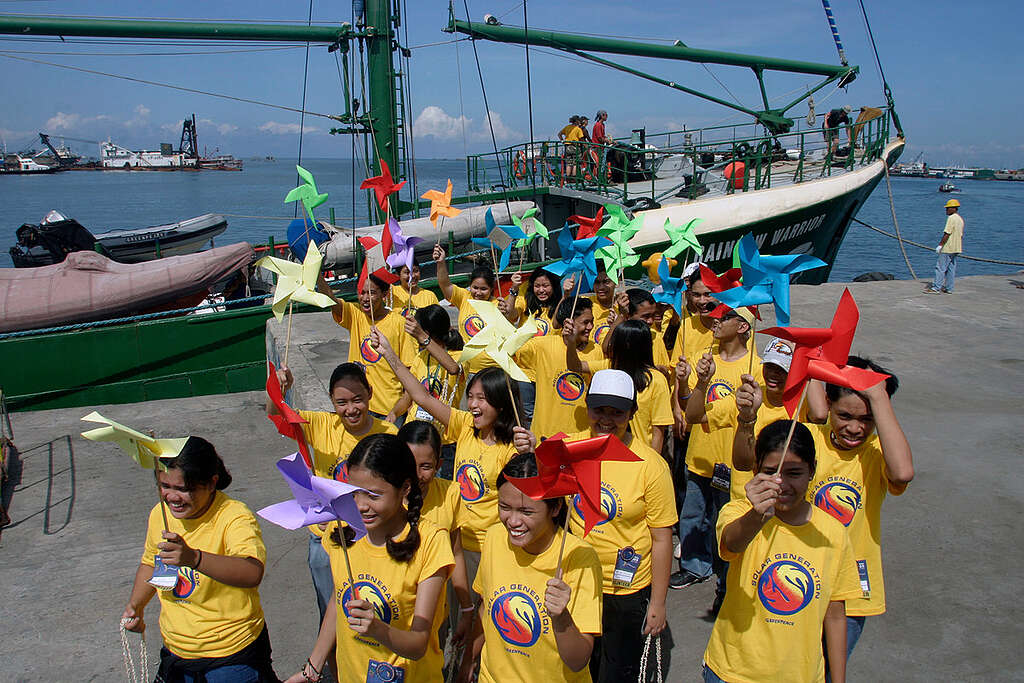
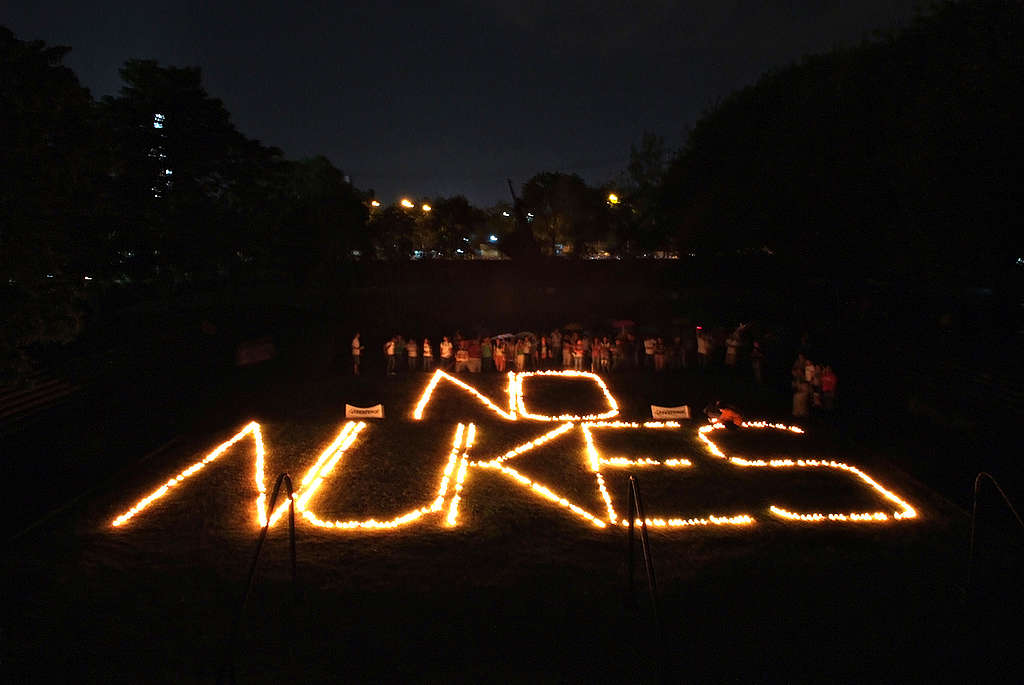
Anti-nuclear campaign
Greenpeace Philippines has consistently opposed the use of nuclear power due to the severe risks it poses to both people and the environment. Our Anti-Nuclear Campaign has focused on raising awareness about the dangers of nuclear energy, from potential disasters to the long-term management of radioactive waste. We have been particularly active in campaigning against efforts to revive the Bataan Nuclear Power Plant (BNPP), advocating instead for safer, more sustainable energy solutions. This ongoing campaign underscores our commitment to protecting future generations from the inherent dangers of nuclear energy, while promoting clean, renewable alternatives.
Better cities
It’s no unique experience for those living in the metro to get stuck in routine traffic, breathe in the toxic carbon dioxide from vehicle emissions, and drown in the noise pollution from commercial activities—all while being subject to heat in summer or flooding in the rainy season.
The Urban Justice or CoLead your City campaign seeks to address the challenges of urbanization in the Philippines. By advocating for sustainable city planning and the rights of urban communities, the campaign helped shape a vision of cities that are more just, equitable, and environmentally sound. This work continues as we support urban initiatives that prioritize people and the planet.
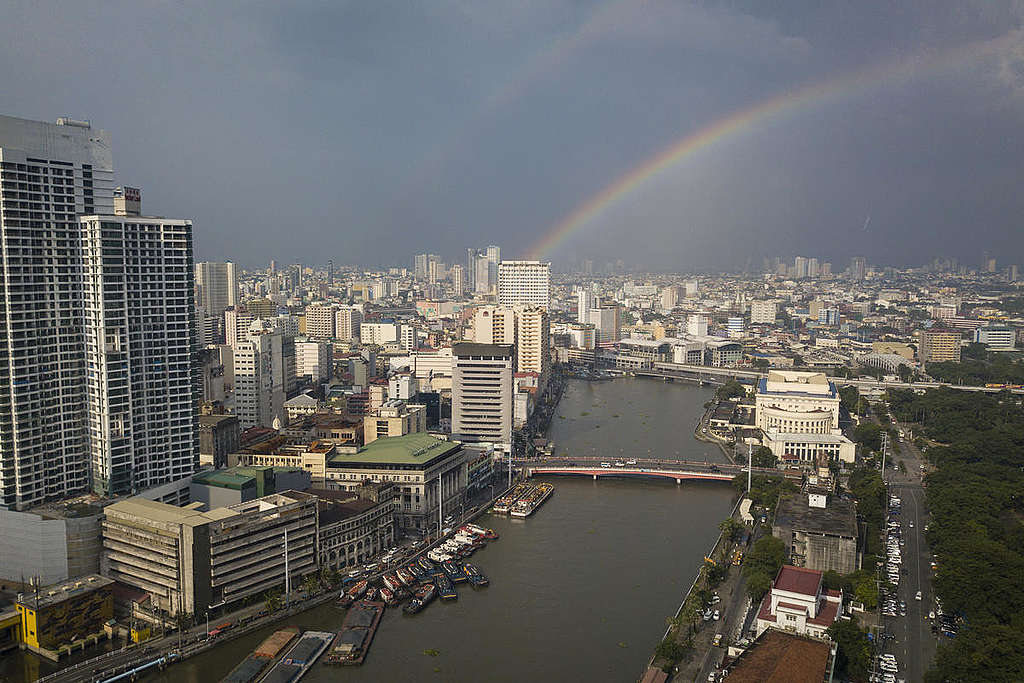
Explore our legacy
Use our website’s search function to dive into our archives and discover the impactful campaigns that have shaped our fight for a better environment and a sustainable future.
Stay informed, stay empowered
Join our community to stay updated on Greenpeace’s latest campaigns, news, and actions for a sustainable future.
